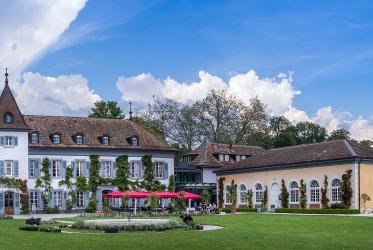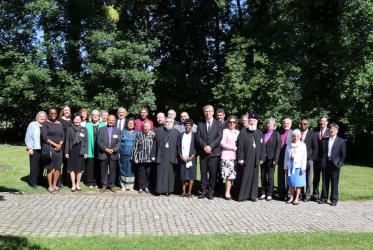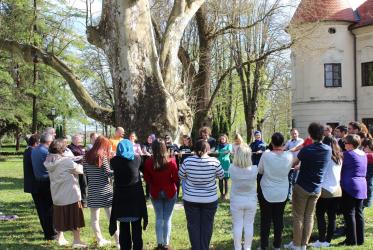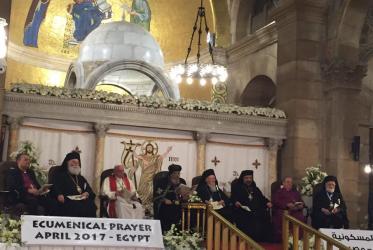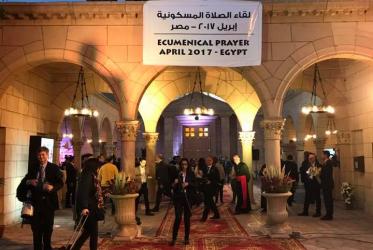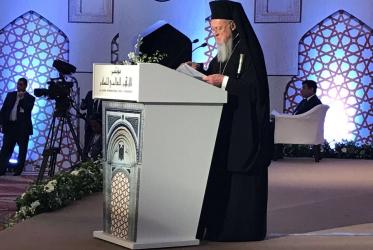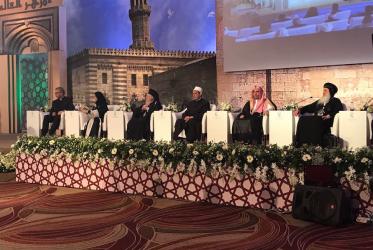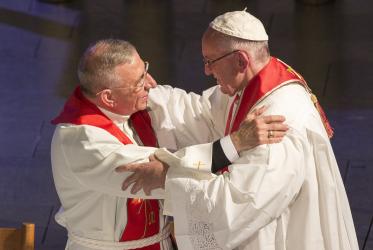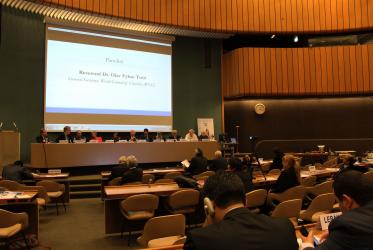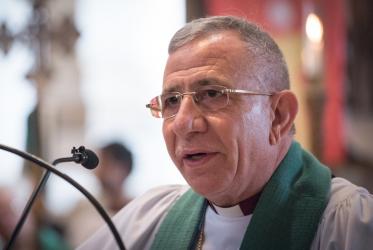Displaying 161 - 180 of 305
Women in development create space for hope in Egypt
15 June 2017
WCC Executive Committee to focus on unity
08 June 2017
Pentecost is time to pray for unity and just peace
05 June 2017
‘Love is stronger than hate’
02 May 2017
Historic ecumenical prayer in Egypt for peace and unity
30 April 2017
Islam and Christianity: finding the common ground
16 March 2017
WCC gravely concerned over Israel’s travel ban
09 March 2017
“What can we contribute as a worldwide fellowship?”
06 March 2017
Praying for one another, even when we disagree
02 March 2017
Bishop Younan awarded Niwano Peace Prize
22 February 2017
WCC general secretary speaks on religion and discrimination
14 February 2017
An interview with the Ethiopian Patriarch, Abune Matthias
14 February 2017
